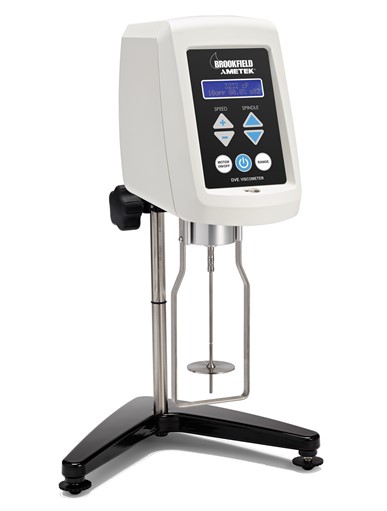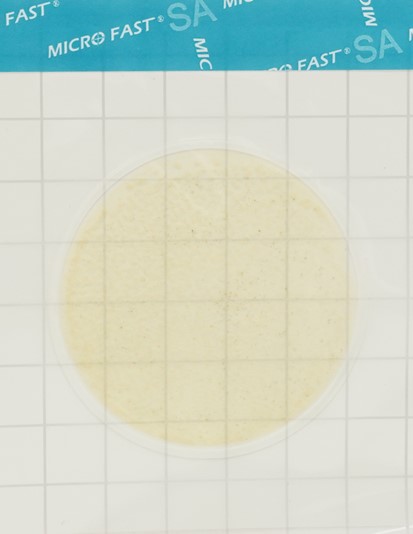24/7 access: how Muscovites can monitor the progress of treatment directly from the hospital

Patients in Moscow hospitals can now view the results of their tests, diagnostics and information about treatment in general online , right during treatment . Thus, not only the traditional discharge summary after hospitalization became available to them - now the treatment process can be monitored over time.
This data is stored in an electronic medical record (EMR), to which Muscovites have had access since the beginning of 2020. At first it was only possible from the mos.ru portal, and later, in the summer of the same year, a mobile version of the medical card appeared in the EMIAS.INFO application. Since then, the service has continued to develop. One of the first features on the portal was the function of viewing vaccinations and tests for COVID-19 , which was especially important during the pandemic. Muscovites gradually began to have access to doctor's examination reports, CT scans, MRI, fluorography, as well as discharge summaries, sick leave certificates, data on ambulance calls, vaccinations and more. It is important that the user can upload documents from the medical record, send them by email or via instant messengers.
Photo: press service of the Moscow Social Development Complex
Since the launch of the EHR service, residents of the capital have gained access to 8 million medical records, of which almost 20% are for children. More than 4.6 million citizens use a medical card on their smartphone in the EMIAS.INFO mobile application. The number of requests to medical records exceeds 620 million. At the end of 2022, all children's clinics in the capital switched exclusively to EHRs. As the Moscow authorities reported then , the paper cards were collected and transferred to the Main Archive for storage, and doctors stopped using them.
“The advantages of the digital format are obvious,” said Moscow Deputy Mayor for Social Development Anastasia Rakova. — Documents cannot be lost, the card can be accessed from anywhere. Doctors can study a patient’s complete medical history, and patients, for example, can find out test results without visiting a clinic.”
Anastasia Rakova (Photo: press service of the Moscow Social Development Complex)
Since the beginning of 2024 , information about the hospitalization of each patient in city hospitals and all medical documents created while in the hospital have become available in the electronic medical record on the mos.ru portal and in the EMIAS.INFO mobile application. Patients can view this data in the new “Hospitalization” section not only after discharge, but also directly during hospital treatment. In total, during this time, the new section of the electronic medical record was accessed more than 2.6 million times, Moscow Mayor Sergei Sobyanin wrote in his Telegram .
Digital MBA: management in the digital era
The online course will help improve your leadership and
digital skills.
In order for the patient to be able to access information about the current treatment, you need to download the EMIAS.INFO application - it will reflect the fact of hospitalization when admitted to the hospital. Such a patient will have a “Hospitalization” section in the application. “If necessary, even relatives can view treatment details, which is very important for older people. To do this, it is enough to provide temporary access to data from your electronic medical record. Parents also see information about their child’s hospitalization online if they have access to their medical record,” the mayor noted in his Telegram.
What does this do for the patient?- Previously, while in the hospital, the patient received information about the upcoming treatment, appointments and results of studies and tests from the attending physician during the round. Thus, the doctor acted as the only source of information about the dynamics of the condition and further steps of treatment. Now the patient sees all doctor’s prescriptions, test results, diagnostic studies, examination and surgical protocols, and specialist consultations online and 24/7 in the electronic medical record. In addition, in the mobile version of the electronic medical record, patients undergoing treatment in a hospital will be able to quickly receive notifications about new appointments. The treatment process has become open and transparent for the patient.
- Having all the information at once, the patient can ask the attending physician clarifying questions about his condition and the results of tests and treatment, having studied the data in his chart.
- The patient now has the same information as the medical professional, essentially receiving it at the same time as the doctor.
- After hospitalization, the patient is left with not just a discharge summary, but a full history of hospital treatment. Such information may, for example, be needed when seeking advice from other specialists.
The patient community welcomes new changes in the electronic medical record, which allow everyone to monitor the progress of treatment in real time, said co-chairman of the All-Russian Union of Patients Yuri Zhulev. “We have repeatedly said that all documents need to be uploaded to the EHR; this is important both during treatment and after. At a minimum, because the patient still has electronic versions of the studies, which may be useful to him after discharge. This is patient-centricity,” he says.
Photo: press service of the Moscow Social Development Complex
At the same time, nurses cannot always answer a patient’s question in detail and thoroughly, for example, what exactly is in his IV, redirecting him to a doctor, recalls Zhulev. The new service will help resolve questions about drug therapy and relieve the doctor’s workload. “Of course, this does not remove the legal responsibility to communicate with the patient, but it complements communication with the doctor,” the expert noted.
What analogues are there in other countries ? GermanyMedical services that provide doctors and patients with various data exist in at least 13 countries; we can talk about about 24 services with functionality that varies from country to country. In Germany, the reason for creating an electronic EPA patient record, similar to Russia, was the desire to digitally combine all patient data that could be stored in different institutions. From 2021, all insured persons can receive this card, and from 2025 it will be created automatically.
The data stored by electronic cards includes medical reports, x-rays, a plan for taking prescribed medications, a vaccination passport, a pregnant woman’s exchange card (“maternal passport”), an electronic certificate of incapacity for work, a built-in messenger for communication with medical representatives, as well as your own data, for example, a blood glucose diary.
USADepending on the affiliation of the medical institution and the state, different medical services are used in the country. One of them is a non-governmental service, the MyChart assistant application from Epic Systems. It provides access to test results, a list of prescribed medications, vaccination history from different clinics, as well as a history of hospital visits, epicrisis data upon discharge from hospitalization, etc. Additional features: the ability to create a general family history, daily recording of health indicators through linking with popular applications like Apple Health , access to participation in medical research.
In addition, the same developers created MyChart Bedside, an app available on hospital tablets that connects the patient with hospital staff. It allows you to view information about hospital treatment in real time: planned procedures, prescribed medications , vital indicators of the body’s condition, data on the composition of the hospital staff who are involved in the treatment of a particular patient. You can also use the app to inform healthcare workers about current needs, such as going for a walk or getting an extra blanket. The applications are linked, so after discharge, all information about the progress of therapy appears in MyChart.
SingaporeSingaporeans also have their own medical digital assistant: HelathHub allows you to access hospital records, laboratory test results (for chronic diseases), appointments and referrals from government medical institutions, vaccination data for adults and their children, as well as request a repeat of a previously issued prescription and pay online medical services, such as hospitalization. There are also additional functions: calculating the risk of diabetes based on downloaded data, providing access to medical records and prescriptions for caregivers, a body mass index and calories calculator.
Thus, Moscow is the first city in the world where, in the field of public medicine and on such a scale, hospital patients have access to all the results of studies and analyzes carried out in the clinic, as well as to the prescriptions of their attending physicians. All this thanks to a single digital platform created in Moscow.
Paperless clinics in MoscowToday in Moscow there are already nine medical institutions operating as “digital clinics”: these are the N.V. Sklifosovsky Research Institute, the V.V. Veresaev Hospital, the S.P. Botkin Hospital, No. 15 named after O.M. Filatov, the V. M. Buyanov, No. 1 named after N.I. Pirogov, Infectious Clinical Hospital No. 1, MMCC "Kommunarka" and City Clinical Hospital named after S.S. Yudin. The first were those hospitals where flagship centers were opened to provide emergency care, because it is when providing ambulance and emergency care that minutes and seconds count. Digitalization saves valuable time. At the same time, according to the plan of the capital authorities, in the next two years the digital model of work will be scaled to all multidisciplinary hospitals in the city.
Photo: press service of the Moscow Social Development ComplexPros of paperless hospital operations
- Medical data is maintained and stored digitally in EMIAS and is not duplicated on paper.
- Information about services provided to the patient, operations performed, etc. can be seen in a single digital environment by all doctors involved in treatment. That is, it is available not only to those who are holding a paper card in their hands at the moment.
- Personnel mobility. Tablets connected to EMIAS free doctors and nurses from being tied to workstations with desktop computers, allowing them to be where they can bring maximum benefit to patients. For example, critical care nurses are now freed from transcribing readings from bedside monitors into intensive care charts thanks to digital resuscitation. The service allows you to record the dynamics of patients’ conditions online, and this data is available to doctors in real time.
- “Digital” radically transforms the processes of interaction between personnel both within departments and between them, and the entire way of life in hospitals, eliminating accumulated routine and automating key processes.
- Ultimately, the digitalization of Moscow healthcare is beneficial to the patients themselves, since the doctor does not waste time filling out paper cards. This allows you to pay more attention to the patient. One example is when ambulance teams transmit information about the patient’s condition to the hospital emergency department. Thanks to this, doctors can begin preparing for an appointment in advance.
The system currently built in Moscow for informing patients about the progress of hospitalization, centralized through digital services, is therefore unique for Russia and the world. In a conversation with RBC, the director of the project office of the Tsifromed company, Viktor Komarov, sees at least two directions for its further development.
First, in the future, medical information systems will be able to offer more detailed explanations and recommendations, taking into account the assessment of all the results of tests and studies of the patient. Secondly, this is the transfer of the capital’s experience to the federal level. “The question here is not even about creating infrastructure, but about planning, piloting and scaling the service to all regions,” Komarov concluded.




























































